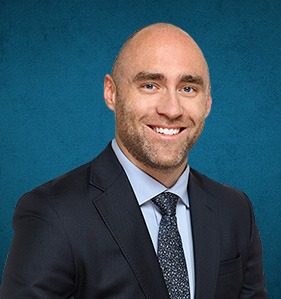CALL (800) 863-5312 TO SPEAK WITH A FORT COLLINS SLIP AND FALL LAWYERS FOR FREE
A trip to the store or a visit to a friend’s house should not lead to a lawsuit. However, sometimes a property owner’s negligence causes injuries to their guests. Property owners might fail to make sure their property is safe for guests or fail to warn guests of any potential hazards on the property.
If you or your loved one has been injured due to an unsafe or defective condition on someone’s property, you may be entitled to compensation. Call Zinda Law Group at (800) 863-5312 for a free consultation with one of our Fort Collins slip and fall lawyers.
WHAT IS PREMISES LIABILITY?
Premises liability is the concept that a property owner is liable for harm that occurs to others on his or her property. However, the owner is generally liable only if he or she was negligent in taking care of his or her property. In a typical negligence case involving premises liability, a plaintiff must prove the following:
- The property owner owed a duty to the plaintiff to provide a safe premise and/or give warning of dangerous conditions on the property.
- The property owner did not provide a safe premise and/or give warning of dangerous conditions on the property.
- The plaintiff was injured.
- The lack of a safe premise and/or warning injured the plaintiff.
COLORADO’S PREMISES LIABILITY ACT
When a plaintiff is injured because of an unsafe or defective condition on another’s property, there are many factors that determine the extent of the property owner’s liability. One factor is the plaintiff’s status when he or she entered the property. Under the Colorado Premises Liability Act (C.R.S. §13-21-115 Actions against Landowners), a plaintiff injured on property falls into one of three categories: invitee, licensee, or trespasser.
Invitee
According to CRS §13-21-115(a), an invitee is “a person who enters or remains on the land of another to transact business in which the parties are mutually interested or who enters or remains on such land in response to the landowner’s express or implied representation that the public is requested, expected, or intended to enter or remain.” Probably the simplest example of an invitee is a shopper at a retail store. A retail store owes the shopper a duty to make sure that the store is free from hazards that could injure the shopper.
Read More: Fort Collins Ski and Snowboard Accident Lawyers
Licensee
According to CRS §13-21-115(5)(b), a licensee is “a person who enters or remains on the land of another for the licensee’s own convenience or to advance his own interests, pursuant to the landowner’s permission or consent.” An example of a licensee is the social guest. For instance, if your friend invites you to his or her house, you would be considered a licensee. A property owner has a duty to warn a licensee of any hazards on the property but does not need to rectify them.
Though a property owner owes a duty to both invitees and licensees, an invitee is more protected than a licensee because a property owner only has to warn a licensee of defects while to an invitee he or she has to actively assure that his or her property is safe.
Imagine you go out to a restaurant and you slip on a puddle on the floor because the restaurant was negligent in mopping up its floors. You would have a viable claim against the restaurant because you were an invitee. This is true even if a restaurant employee told you that there is a puddle on the floor. Without taking any actions to remove the puddle or setting up barriers, a warning is simply not enough to protect a property owner from liability. On the other hand, imagine that you go to a friend’s house and your friend tells you that there’s a puddle on the floor. If you end up walking over the puddle and slipping and falling, you would not likely have a viable claim against your friend because you were a licensee.
Trespasser
According to CRS §13-21-115(5)(c), a trespasser is “a person who enters or remains on the land of another without the landowner’s consent,” and “a trespasser may recover only for damages willfully or deliberately caused by the landowner.” This means that if you get injured while trespassing on another’s land, you may unlikely have a viable claim against the property owner. You will only have a claim as a trespasser if the property owner goes out of his or her way to harm. For instance, if the property owner set up booby traps to harm you, then you may likely have a claim.
COMMON PREMISES LIABILITY INJURIES
- Bruises and cuts
- Stretched tendons, pulled muscles, torn ligaments
- Sprained or broken ankles/wrists
- Broken arm/legs
- Fractured collarbones
- Damaged knees
- Fractured tailbones
- Hip fractures
- Spinal cord injury
COMMON CAUSES OF PREMISE LIABILITY CASES
- Slip and falls
- Slippery sidewalks due to water or ice
- Inadequate maintenance of elevator, escalator, etc.
- Construction defects
- Dog bites
WHAT ARE MY RIGHTS AFTER A SLIP AND FALL ACCIDENT?
One of the most common accidents leading to a premises liability claim is the slip and fall. But just because you have a slip and fall accident on another person’s property, you are not guaranteed compensation. The type of property where the slip and fall took place heavily determines whether you have any right to compensation. For instance, your right to compensation may be lower if the slip and fall took place in a public space or at the workplace.
If you walk on a public sidewalk with numerous potholes and fall, you may not be successful in filing a lawsuit against the government because government entities are often immune to civil lawsuits.
In the workplace context, workers’ compensation generally prevents an employee from suing the employer for a slip and fall accident. However, if your employer intentionally provided an environment that made you slip and fall, you may be able to sue your employer even if you have workers’ compensation.
WHAT TO DO AFTER BEING INJURED ON SOMEONE ELSE’S PROPERTY
1. Seek Medical Treatment
Seeking prompt medical treatment is not only important for your health, but also your premises liability claim. A doctor’s report serves as evidence of your injuries and may help determine how much your claim is worth.
2. Take Photographs and Collect Witness Information
If you are able, try to take pictures of the unsafe conditions on the property that caused your injury. Without such pictures, you may be at a disadvantage in your claim if the property owner remedies the unsafe conditions before you even file your claim. Also, try to file an accident report with the property owner.
If there were any witnesses to the accident, ask if they are willing to give their names and phone numbers. If a witness also took a video or photographs, ask if they would be willing to send those documents as well.
3. Get an Experienced Lawyer
Often, when you are injured on a property, an insurance agent of the property owner will contact you, asking you to sign or give statements. Do not respond to any of these requests without speaking to an experienced lawyer. An experienced Fort Collins slip and fall lawyer knows the kind of tactics that insurance agents use, so they may advise you how to make an informed decision.
Read More: How to Negotiate with Insurance Companies
WHOM MAY I SUE?
According to the Colorado Premises Liability Act, a plaintiff may sue the following:
- An authorized agent or a person in possession of real property, and/or
- A person legally responsible for the condition of real property or the activities conducted or circumstances existing on real property.
Note that this means that you do not necessarily have to sue someone who officially owns the property.
WHAT COMPENSATION CAN I CLAIM? (ECONOMIC VS NON-ECONOMIC)
Compensation for both economic and non-economic losses are available for successful plaintiffs.
Compensation for economic losses accounts for past and future medical bills, past and future lost wages, damaged property, and past and future loss of earning capacity.
Compensation for non-economic losses accounts for past and future emotional anguish, pain and suffering, and loss of enjoyment of activities.
Note that Colorado courts use what is called modified comparative negligence when they determine how much compensation a victim receives. The comparative fault rule assigns a percentage of responsibility for the accident to each party, including the plaintiff. For example, a jury may find that a defendant property owner was 70% at fault for failing to put up a “wet floor sign,” but a plaintiff victim was 30% at fault for texting while walking. As long as you are 49% or less at fault, you may be entitled to compensation–reduced by the percentage of your fault. If you were 50% or more at fault, you are barred from receiving any compensation.
Read More: How to Calculate the Value of a Personal Injury Case
STATUTE OF LIMITATIONS
A statute of limitations sets a time limit by which you have to file a lawsuit. In Colorado, if you suffered a slip and fall or another injury due to the negligence of a property owner, you have two years to file a personal injury lawsuit against the responsible party.
CONTACT A FORT COLLINS PREMISES LIABILITY LAWYER
The experienced Fort Collins attorneys at Zinda Law Group may be able to help you with your personal injury claim. After an accident, you shouldn’t have to worry about affording legal representation, which is why we work on a contingency fee basis. You don’t owe us anything unless we win your case.
Call us today at (800) 863-5312 for a free consultation with one of our Fort Collins slip and fall lawyers.
Meetings with attorneys by appointment only.

John (Jack) Zinda
Founder / CEO
Over 100 years of combined experience representing injured victims across the country.
Available 24 / 7|Free Consultation
Neil Solomon
Partner
Real results matter. We do not get paid unless we win your case.
Available 24 / 7|Free Consultation

























